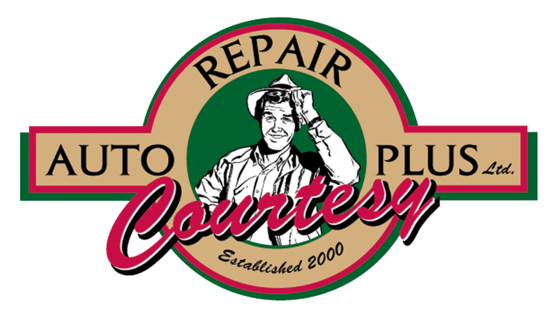No Strain, No Gain (The Basics of Oil Filters)
July 31, 2022
Ever wonder what one of the best things is to ever happen to your vehicle's engine? It's the little thing that usually looks like a can, the oil filter.
Just like your kitchen sink strainer filters out errant particles of food from clogging your drain, the oil filter cleans out small particles that could cause your engine harm.
Your engine operates in a dirty, hot environment and gathers a lot of tiny contaminants like dirt, dust, little metal shards and unlucky bugs that get sucked in. Get those things circulating in your engine and those little particles can cause friction, which starts wearing out those finely machined metal parts.
You know how important it is to change your oil regularly. It's vital that you change your oil filter at the same time to keep the oil as close to brand new as possible.
Most oil filters look like a metal can with some holes in the bottom. Inside there are carefully chosen materials that can screen out the contaminants while at the same time allow the lubricating oil to pass through. Early oil filters had steel wool, metal mesh or actual screens. Then they tried fabric filters using material such as linen and cotton. Finally, a less expensive disposable filter using paper and cellulose did the trick.
Cellulose or other synthetic media are used in most oil filters today. Cellulose is inexpensive and effective. Fibers filter out particulates and let the oil flow. The other synthetic media have the ability to screen out even tinier particles while not significantly restricting the oil from getting through. Engineers continue to work on even more advanced filter material.
Choosing the right oil filter is something our pros at Courtesy Auto Repair Plus can help you with because there are a lot of them out there. Factoring into that decision are your driving habits, how far you drive and the temperatures to which your engine will be subjected. While some filters will cost more than others, they may be worth it to extend the life of your engine.
But most important is remembering to come have your oil changed at Courtesy Auto Repair Plus regularly at the intervals recommended by the vehicle's manufacturer. Just like you wouldn't want to have a plumber come over to fix a clogged kitchen drain, you certainly wouldn't want to have to pay for major engine repairs if they could be prevented by regular oil and filter changes.
Courtesy Auto Repair Plus
967 Bon Air Ave
Tiffin, Ohio 44883
419-443-0797
http://www.courtesyautorepairplus.com
More articles from Courtesy Auto Repair Plus

Lubricate Driveshaft
April 20, 2025
See if any of these are happening to your vehicle. You feel it vibrating excessively underneath when its running, or you hear strange clunking, grating, or grinding sounds coming from beneath. Maybe its hard to turn your vehicle, or you can hear squeaking when youre going slow. Perhaps you fee... More

Change is Good (Oil Change)
April 13, 2025
You've heard that expression, change is good. When it comes to your vehicle's oil, change is not only good, it's vital for the health of the engine. But there's one question that puzzles many drivers: how frequently should my vehicle's oil be changed? There is not one simple answer, but here ar... More

Fuel for Thought
April 6, 2025
If you're like most people and drive a gasoline-powered vehicle, you need to be up to speed on its fuel-related components. They're pretty basic: the fuel, the fuel filter and the fuel pump. The fuel's the easy part. You probably gas up your vehicle yourself and, if you're like most drivers, pr... More







